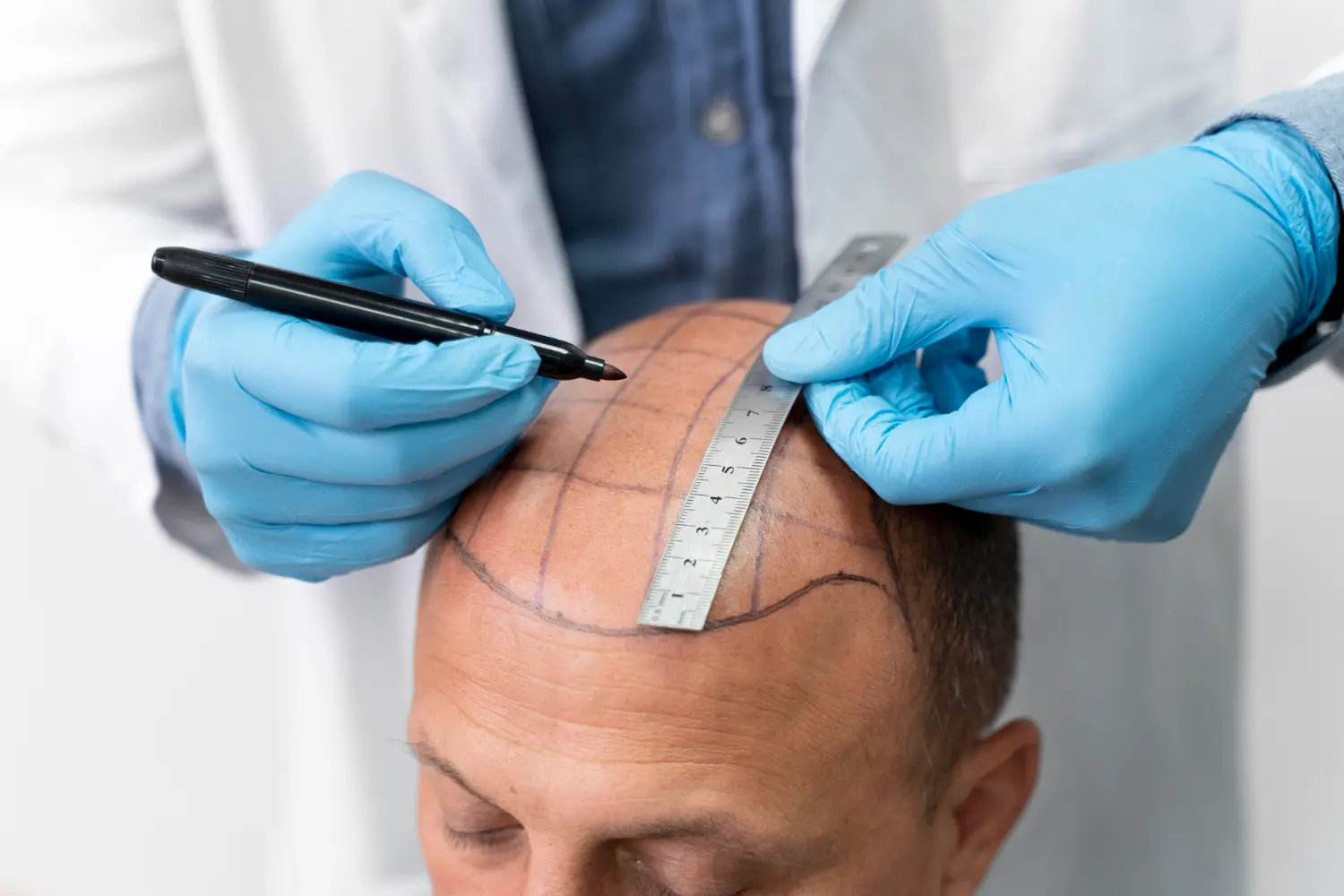Is Hair Transplant Permanent? A Comprehensive Guide
- November 28, 2024
- Medical Information
A hair transplant is a popular solution for those experiencing hair loss, offering a potential long-term solution to restore natural hair growth. But the crucial question many ask is: Is hair transplant permanent? In this detailed guide, we will explore how permanent hair transplants are, the factors that influence their success, and what you can expect post-surgery. We will also cite reputable sources and expert opinions to provide a well-rounded answer.
Is Hair Transplant Permanent? A Comprehensive Guide
A hair transplant is a popular solution for those experiencing hair loss, offering a potential long-term solution to restore natural hair growth. But the crucial question many ask is: Is hair transplant permanent? In this detailed guide, we will explore how permanent hair transplants are, the factors that influence their success, and what you can expect post-surgery. We will also cite reputable sources and expert opinions to provide a well-rounded answer.
Understanding Hair Transplants
A hair transplant involves removing hair follicles from a part of the scalp with dense hair growth (typically the back or sides of the head) and implanting them into areas experiencing thinning or baldness. There are two main types of hair transplants:
- FUT (Follicular Unit Transplantation): A strip of scalp is removed, and the follicles are extracted from it.
- FUE (Follicular Unit Extraction): Individual follicles are harvested and transplanted.
The primary goal is to restore natural hair growth in balding areas, but the real question is whether this solution provides permanent results.
Is Hair Transplant Permanent?
The short answer is: Yes, hair transplants are permanent, but there are important nuances to understand. Here’s why:
1. Donor Hair Is Permanent
The hair follicles transplanted to the bald area come from a part of your scalp that is genetically resistant to hair loss. This area is often referred to as the donor zone. Hair from this region is not affected by the hormones that cause male and female pattern baldness. Therefore, once transplanted, these hairs should continue to grow for the long term.
According to Dr. Stefano Cera, a leading hair restoration surgeon, “The success of a hair transplant relies heavily on the donor hair, which is genetically designed to resist thinning. Once implanted, these follicles are likely to grow for a lifetime.”
2. The Transplanted Hair Grows Naturally
Once the transplant procedure is complete, the transplanted hair goes through a natural growth cycle. Initially, the hair will fall out in the first few weeks as part of the normal healing process (known as “shock loss”). However, within a few months, the transplanted follicles will begin to grow new hair.
By the 6–12 month mark, the results should be visible, with significant hair growth appearing. Full results typically take 12–18 months. The new hair will grow just like the rest of your natural hair.
3. Lifelong Growth Potential
Since the hair comes from the donor area, the growth should be permanent, as these follicles are resistant to the effects of DHT (dihydrotestosterone), the hormone responsible for male and female pattern baldness. This makes the hair transplant process a long-term solution, provided that the procedure was done correctly and the aftercare instructions are followed.
Factors Affecting the Longevity of Hair Transplants
While hair transplants are generally permanent, several factors can influence their long-term success:
1. The Age of the Patient
Younger patients may experience continued hair loss around the transplanted areas as they age. While the transplanted hair is permanent, the surrounding natural hair can still thin over time. Therefore, older patients may see a more stable result because they are less likely to experience further hair loss.
2. The Quality of the Donor Hair
The success of a hair transplant depends on the quality and density of the donor hair. If the donor hair is thin or weak, the results may not be as successful. A consultation with a professional can help determine whether you’re a good candidate for the procedure.
3. Post-Surgery Care
Proper care after a hair transplant is crucial for ensuring the permanence of the results. Following the surgeon’s advice on washing, medication, and avoiding physical trauma to the scalp is essential for optimal results.
4. Complications and Rejection
Though rare, some individuals may experience complications such as infection, follicle rejection, or poor healing. These issues can prevent the full potential of the transplant from being realized. Seeking treatment from a highly skilled and experienced surgeon helps minimize these risks.
Can Hair Transplants Fail?
While hair transplants are highly successful, there are instances where results may not meet expectations. These instances are typically due to:
- Poor candidate selection: Not all individuals are suitable candidates for a hair transplant. Factors like age, the degree of hair loss, and the condition of the donor area can affect the outcome.
- Substandard techniques: Choosing an inexperienced surgeon or an inadequate clinic can lead to poor results. It’s essential to choose a reputable clinic with experienced professionals.
- Lifestyle factors: Smoking, alcohol consumption, or high-stress levels can negatively impact the healing process and hair growth.
How to Ensure Long-Term Success with a Hair Transplant
To maximize the permanence of your hair transplant, follow these expert tips:
- Choose a Reputable Clinic: Always select a clinic with a proven track record of successful hair transplants. Ensure that the surgeon is experienced and specializes in hair restoration.
- Follow Post-Operative Instructions: Pay attention to the aftercare provided by your doctor. This includes proper scalp care, medications, and lifestyle adjustments.
- Manage Hair Loss Around the Transplanted Area: Consider using treatments like finasteride or minoxidil to maintain the health of your natural hair around the transplanted follicles.
- Get Regular Check-Ups: Follow up with your doctor to monitor progress and catch any potential issues early.
Conclusion
In conclusion, hair transplants are permanent, provided that they are performed correctly and the post-operative care instructions are followed. The key to lasting success lies in the quality of the donor hair, the skill of the surgeon, and the patient’s commitment to maintaining a healthy lifestyle. If you’re considering a hair transplant in Albania, Albanian Health Agency works with some of the top clinics to provide you with high-quality, long-lasting results. Contact us today to learn more about how we can help you regain your confidence through hair restoration.


